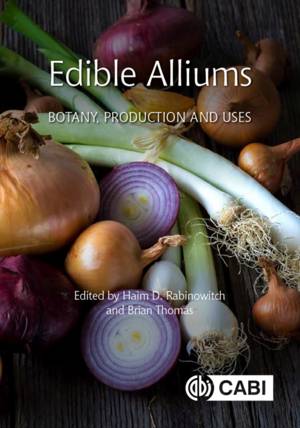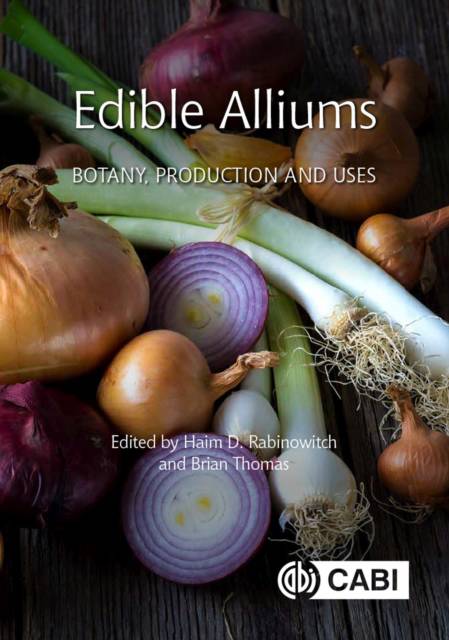
Bedankt voor het vertrouwen het afgelopen jaar! Om jou te bedanken bieden we GRATIS verzending (in België) aan op alles gedurende de hele maand januari.
- Afhalen na 1 uur in een winkel met voorraad
- In januari gratis thuislevering in België
- Ruim aanbod met 7 miljoen producten
Bedankt voor het vertrouwen het afgelopen jaar! Om jou te bedanken bieden we GRATIS verzending (in België) aan op alles gedurende de hele maand januari.
- Afhalen na 1 uur in een winkel met voorraad
- In januari gratis thuislevering in België
- Ruim aanbod met 7 miljoen producten
Zoeken
€ 216,45
+ 432 punten
Omschrijving
Allium crops include more than 30 species, many of which (for e.g. onions, shallots, garlic, leeks, bunching onions, and chives) are of economic importance. Bulb onions rank second only to tomatoes in terms of global production. Alliums are farmed and harvested in a range of climatic conditions worldwide, forming important parts of local diets. This book provides a comprehensive review of major and minor Allium crops from scientific and horticultural perspectives. It broadly covers modern biology (including genetics and breeding), propagation, production, processing, and nutritional and health benefits.Edible Alliums contains coverage of: Both major and minor Allium crops.Improving crop production, quality, and sustainability of Allium crops. Advances in digital technologies, 'omics' research and gene editing.Objectives for improving crop performance, such as integrated crop management, the plant-soil interface, improving propagation materials, post-harvest quality and reducing waste.This is an essential resource for scholars, researchers and students in plant science and agriculture, in addition to molecular biologists, plant breeders, agronomists, consultants, and extension specialists.
Specificaties
Betrokkenen
- Uitgeverij:
Inhoud
- Aantal bladzijden:
- 328
- Taal:
- Engels
- Reeks:
Eigenschappen
- Productcode (EAN):
- 9781789249972
- Verschijningsdatum:
- 29/11/2022
- Uitvoering:
- Hardcover
- Formaat:
- Genaaid
- Afmetingen:
- 172 mm x 246 mm
- Gewicht:
- 916 g

Alleen bij Standaard Boekhandel
+ 432 punten op je klantenkaart van Standaard Boekhandel
Beoordelingen
We publiceren alleen reviews die voldoen aan de voorwaarden voor reviews. Bekijk onze voorwaarden voor reviews.








